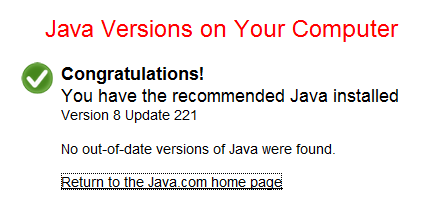 It’s another day of updates, with the usual load from Microsoft, and a new version of Reader from Adobe.
It’s another day of updates, with the usual load from Microsoft, and a new version of Reader from Adobe.
Analysis of the monthly data dump from Microsoft’s Security Update Guide shows that this month we have fifty-two updates (with associated bulletins), addressing ninety-five vulnerabilities in Office applications, Windows, Internet Explorer 9 through 11, Edge, Exchange, SharePoint, and Windows Defender.
Twenty-nine of the vulnerabilities are characterised as having Critical severity, and all of the usual nightmarish potential impacts are represented, including Denial of Service, Elevation of Privilege, Information Disclosure, Remote Code Execution, Security Feature Bypass, Spoofing, and Tampering.
If you’re running Windows 10, there’s not much you can do to avoid these updates, although you can at least delay them. The risks associated with installing updates as soon as they become available are still arguably lower that the risks of delaying them as much as possible, or somehow avoiding them altogether.
In this particular case, however, you definitely should install the updates immediately. That’s because they include fixes for a set of dangerous vulnerabilities in RDS (Remote Desktop Services) in all versions of Windows, including Windows 10. Still not convinced? This month’s updates also include a fix for a terrible vulnerability in the Text Services Framework that’s existed in all versions of Windows since XP. The RDS and Text Services vulnerabilities were discovered very recently; no related exploits or attacks have been observed, but it’s a safe bet that malicious persons are working on exploits right now.
Anyway, as always, Windows Update is your friend. Your annoying, can’t-seem-to-shake-them kind of friend.
 Adobe released updates for several of its products today, of which only Acrobat Reader presents a significant risk, because malicious hacker types enjoy embedding various kinds of nastiness in PDF files, pretty much every computer on Earth has Acrobat Reader installed, and most people with computers open PDF files without even thinking about the risk.
Adobe released updates for several of its products today, of which only Acrobat Reader presents a significant risk, because malicious hacker types enjoy embedding various kinds of nastiness in PDF files, pretty much every computer on Earth has Acrobat Reader installed, and most people with computers open PDF files without even thinking about the risk.
The latest Acrobat Reader (DC Continuous, which is the variant most likely to be installed on your computer) is version 2019.012.20036. It addresses at least seventy-six security vulnerabilities in previous versions. The release bulletin gives credit to a number of non-Adobe security researchers who discovered and reported some of the vulnerabilities.
You can check your version of Acrobat Reader by navigating its menu to Help > About Adobe Acrobat Reader DC. Also on the Help menu is the handy Check for Updates option, which is probably the easiest way to update Reader.
 The latest version of Chrome (Google’s browser, not the open source Chromium project upon which it is based) is 76.0.3809.132. The new version provides fixes for three security vulnerabilities, some of which were discovered and reported by independent researchers.
The latest version of Chrome (Google’s browser, not the open source Chromium project upon which it is based) is 76.0.3809.132. The new version provides fixes for three security vulnerabilities, some of which were discovered and reported by independent researchers. boot13
boot13 One security fix and a handful of other bug fixes were released in the form of
One security fix and a handful of other bug fixes were released in the form of  It’s another day of updates, with the usual load from Microsoft, and a new version of Reader from Adobe.
It’s another day of updates, with the usual load from Microsoft, and a new version of Reader from Adobe. Adobe released updates for several of its products today, of which only Acrobat Reader presents a significant risk, because malicious hacker types enjoy embedding various kinds of nastiness in PDF files, pretty much every computer on Earth has Acrobat Reader installed, and most people with computers open PDF files without even thinking about the risk.
Adobe released updates for several of its products today, of which only Acrobat Reader presents a significant risk, because malicious hacker types enjoy embedding various kinds of nastiness in PDF files, pretty much every computer on Earth has Acrobat Reader installed, and most people with computers open PDF files without even thinking about the risk. Earlier this month Mozilla released a new version of its (still free, and still pretty good) email client, Thunderbird. The new version (
Earlier this month Mozilla released a new version of its (still free, and still pretty good) email client, Thunderbird. The new version ( If you still use Java, and particularly if Java is enabled in Internet Explorer, it’s important to keep it up to date. Security vulnerabilities in Java are still a somewhat popular target for malicious hackers and malware purveyors.
If you still use Java, and particularly if Java is enabled in Internet Explorer, it’s important to keep it up to date. Security vulnerabilities in Java are still a somewhat popular target for malicious hackers and malware purveyors.